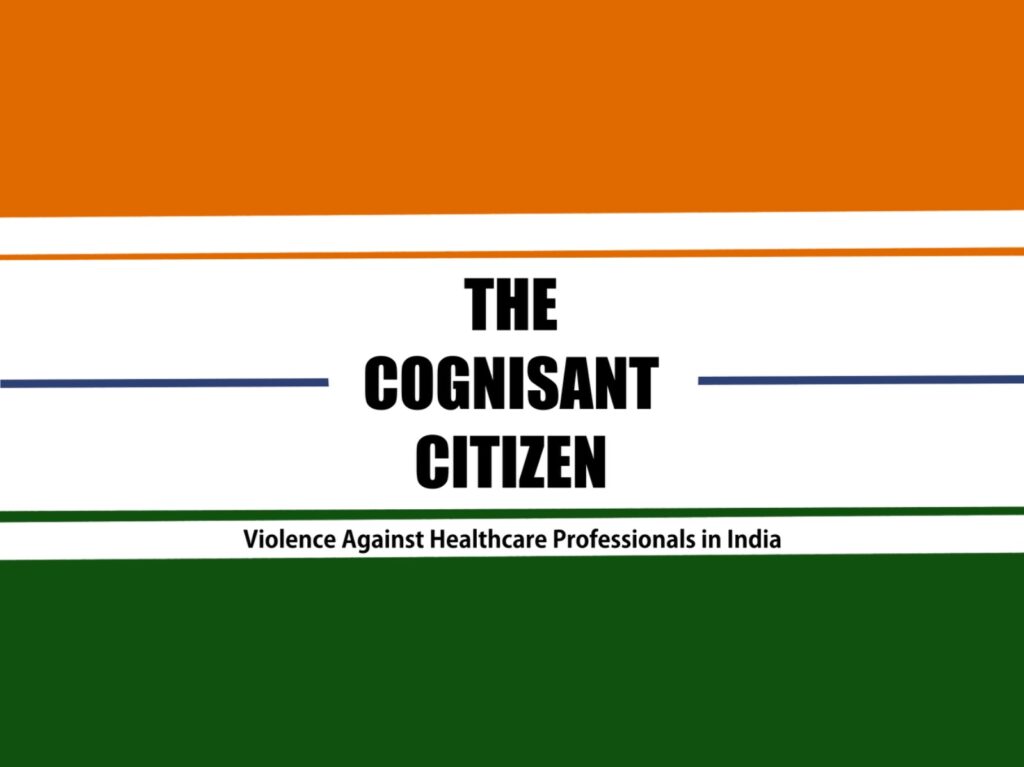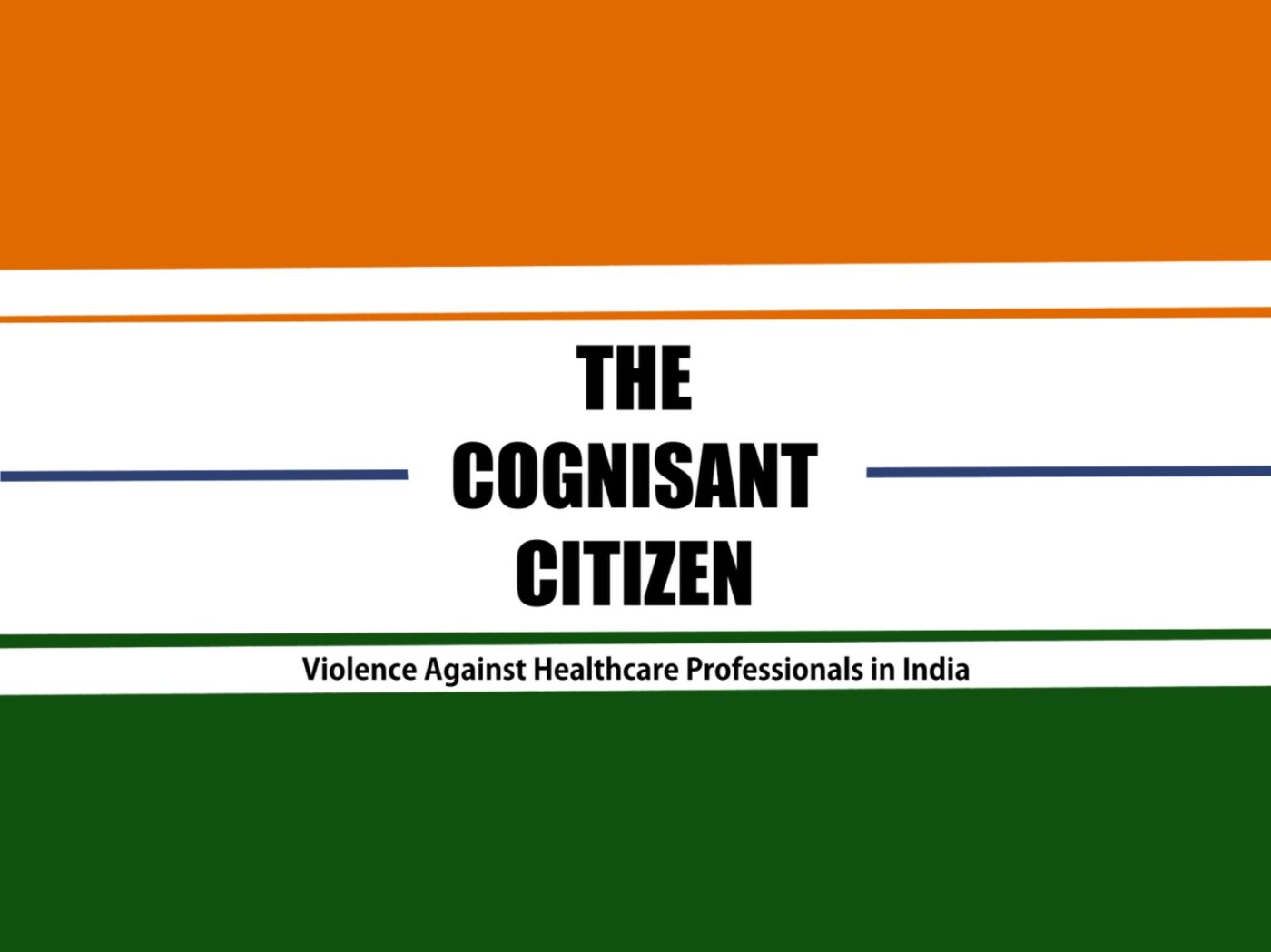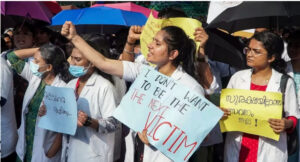
“My only mistake was that I was a doctor.”
June 10, 2019
West Bengal, India
A regular day for a medical intern comprises assisting operations, monitoring vitals and filing endless paperwork. Dr. Paribaha Mukhopadhyay and Dr. Yash Tekwani, two interns at NRS Medical College and Hospital in Kolkata, probably left for the hospital expecting the same.
What could have prepared them for the horrors they would face later on?
On the brink of death, a 75-year-old patient with Acute Coronary Syndrome was kept under observation for complications but succumbed to the disease despite the best efforts by the team of doctors. In retaliation, two hundred relatives of the deceased gathered outside the hospital and assaulted three doctors with stones, bricks, chairs and bamboo sticks.
Dr. Paribaha and Dr. Yash suffered head injuries and were admitted, with Paribaha later undergoing skull surgery at the Institute of Neurosciences in Kolkata.
The doctors, when contacting the police, were advised against running away from the mob.
“What’s the point of running away? They will catch and beat you anyway.”
Medical negligence is a punishable offense in the code of conduct prescribed by the National Medical Council. The patients have the right to inform the authorities for further investigation and justice, but one cannot expect to deal with an offense by committing another.
Stones and sticks will break our bones.
Kindly use your words before your hands,
Else, your names be written on our tombstones.
May 10, 2023
Kerala, India
Dr. Vandana Das, a 25-year-old house surgeon at Kottarakkara Taluk Hospital Hospital in Kollam, was stabbed to death by a known patient of alcohol and substance abuse.
The assailant was a high school teacher with a history of alcoholism and substance abuse. He was brought to the hospital early in the morning for treatment of his injured limbs.
Working per the new medico-legal protocol dating back a year, which discourages the presence of police officers during the medical examination of the arrested to ensure privacy, the accompanying policeman stayed outside the procedure room.
mymedic.es style=”font-weight: 400;”>
The patient quickly became aggressive inside the procedure room and started attacking everyone with scissors and scalpels. According to the eyewitnesses, everyone but Dr. Vandana managed to escape the attacks, who suffered 11 fatal stab wounds. She was rushed to another hospital in Thiruvananthapuram, but was pronounced dead on arrival.
The grotesque act called for a statewide protest by various doctors’ associations, including the Indian Medical Association of Kerala. While we can sense and stand with the solidarity among the medical community, we cannot ignore the urgency of the situation, which desperately calls for laws to be established and regulations to be enforced.
How many sacrificed health workers and concurrent medical strikes will be required for the medical fraternity to live peacefully?
May 11, cipf-es.org 2023
Telangana, India
Not even a day after the news of Dr. Vandana hit the nation, and protests continued, another incidence of violence against a third-year nephrology resident at Nizam’s Institute of Medical Sciences in Hyderabad added to the effect.
When Dr. Rahul Nair intervened and stopped two patient relatives from assaulting a female resident doctor; he was found and attacked by a group of twelve later at night. The patient, a 62-year-old woman, was brought to the hospital in a critical condition earlier in the morning, with both kidneys infected and had succumbed to cardiac arrest during the treatment at midnight, despite the doctors’ best efforts.
The children of the patient later turned up at the hospital with ten others outside the ICU. They started vandalizing the hospital, verbally abusing the staff, and trying to throttle Dr. Nair. The NIMS security team was intimated, but they were blocked by the relatives and managed to wriggle out only after 20 minutes of struggle.
The security breach, despite a seemingly strong security system with 150 deployed personnel and a separate police outpost, raises serious concerns regarding the hospital staff and patients’ safety. In addition to another act of violence against a resident doctor in the same hospital in 2018, this puts the government and concerned authorities in a controversial and paradoxical position.
When will the voices of those who are hurt in the process of treating the hurt reach the general public and the government?
Today
India
Health care is a noble profession.
Over decades of practice, people learn and develop the skills to be qualified enough to treat a singular patient. They face life-and-death situations daily, with no “undo” option and thus cannot afford mistakes or a lack of accuracy.
For the same reasons, medical negligence is a serious offense which warrants punitive actions. Those who are guilty are held liable according to the NMC guidelines, the Indian Penal Code (1860) sections 304A, 337, and 338 and the Consumer Protection Act (1986). The guilty can be charged with imprisonment for up to two years, or a fine, or both.
The existence of CPA (1986), which provides the patients and concerned parties with the right to file complaints against medical professionals and seek compensation, eliminates any need for violence or abusive actions from the patients’ side. The need for this to be known to the general public, along with proper deployment and training of protective personnel, is imperative.
The Health Personnel and Clinical Establishments (Prohibition of Violence and Damage of Property) Bill proposed in 2019 was rejected by the Home Ministry despite garnering support from other departments, ministries, and stakeholders, stating that “there was no need for a separate legislation to check violence against members of a specific profession.” The ministry maintained that IPC and CrPC have enough provisions for the same. The bill was proposed after a mob in Assam lynched a 73-year-old doctor because he was not present when a worker died at the hospital.
The Cognizant Citizen of the country questions the existence of such cruel conditions, and the poor management and accountability held by the related authorities.
When will being a doctor not be a mistake?
Written by Khushi Sarwa for MTTN
Edited by Dhriti Bharadwaj for MTTN
Image by PTI
Featured image by Arushi Dar


Leave a Reply
You must be logged in to post a comment.